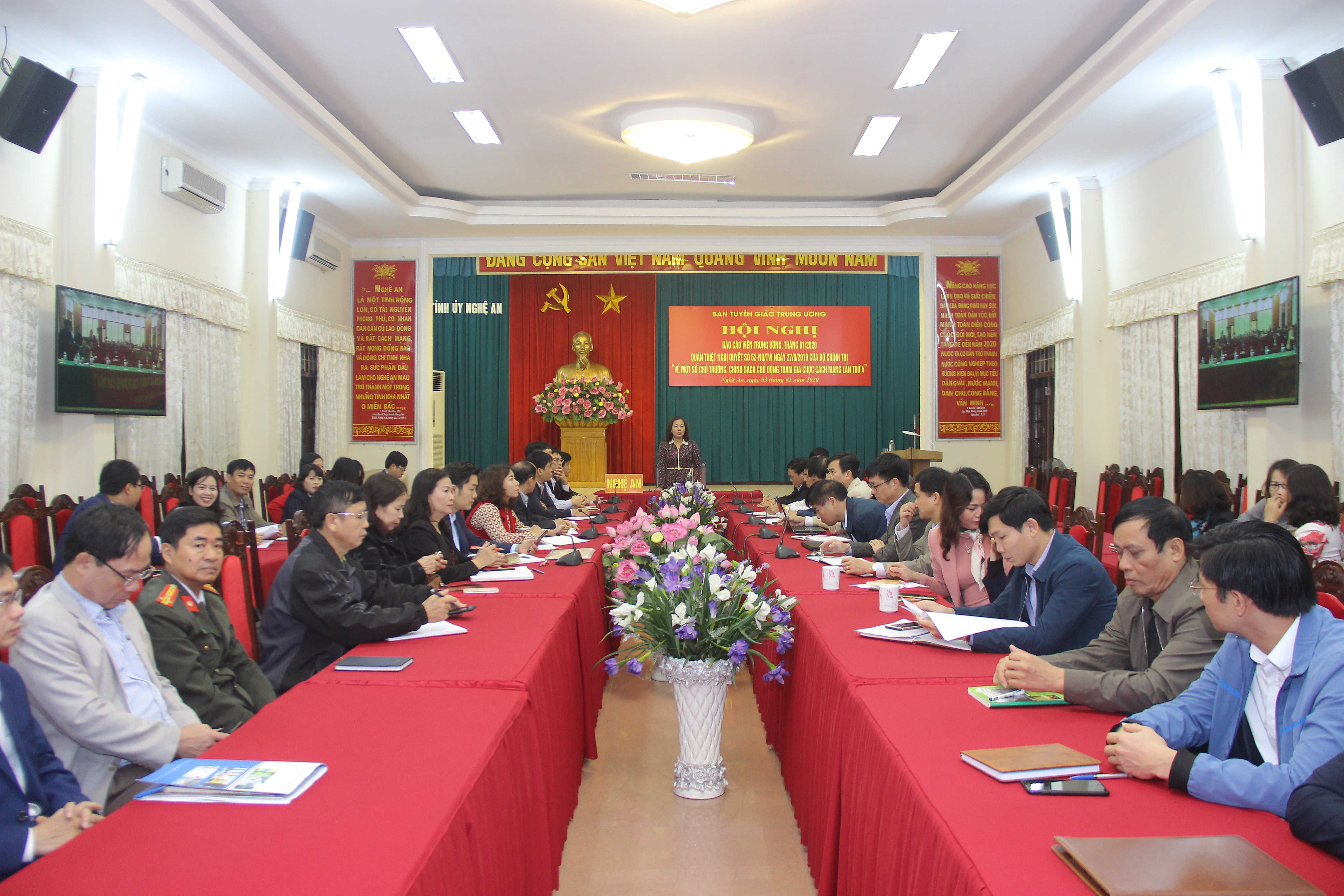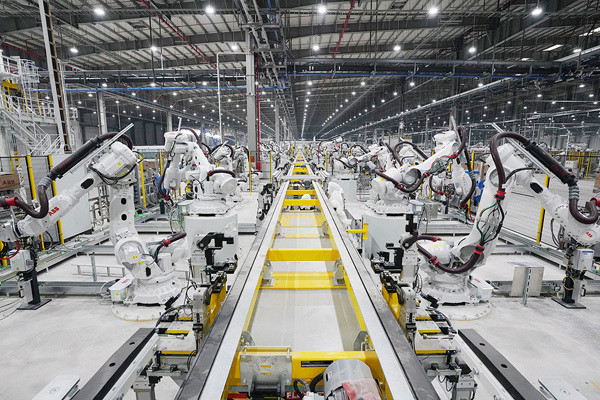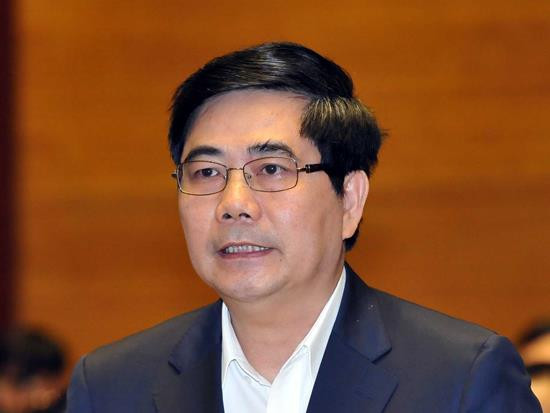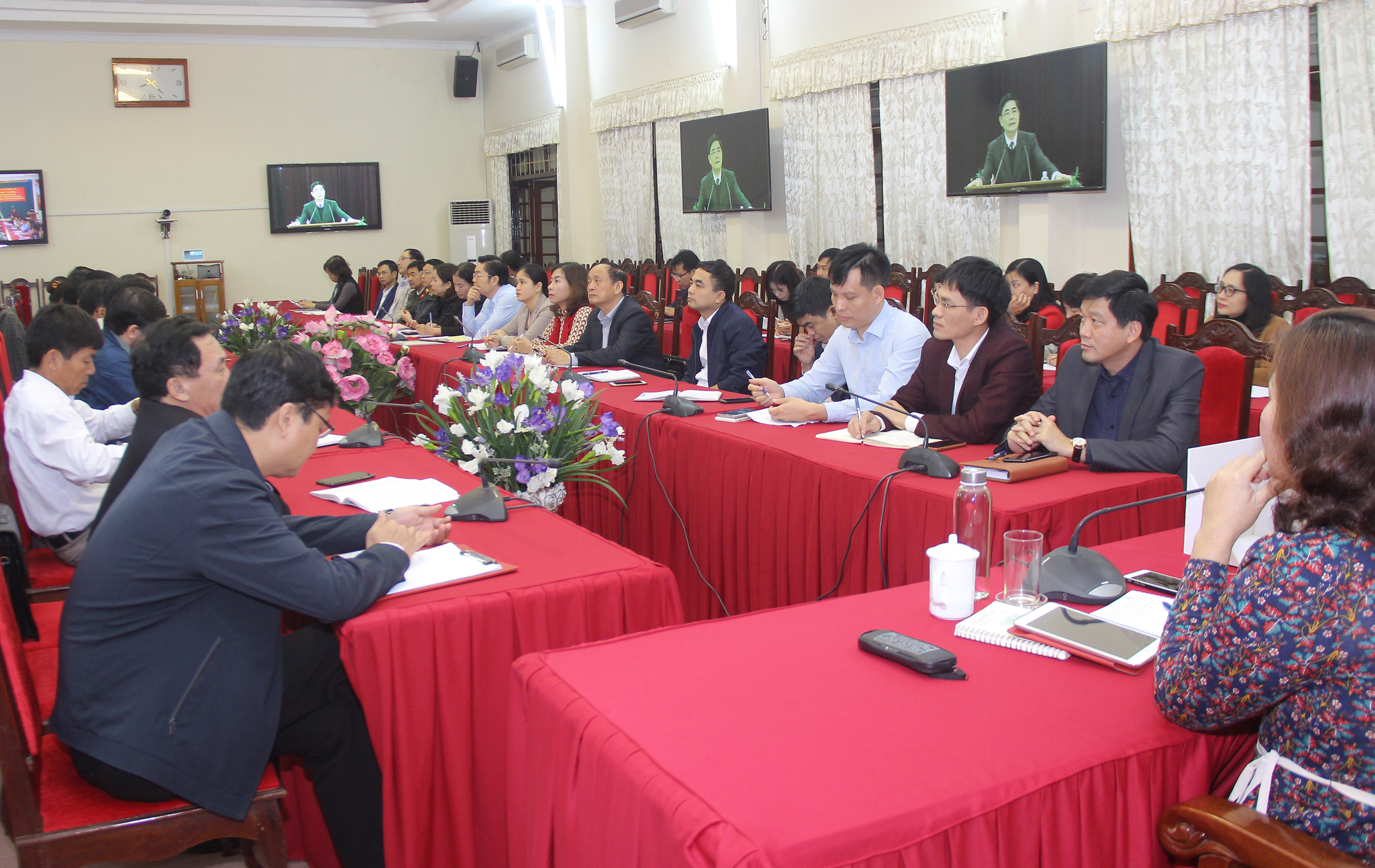Implementing Resolution No. 52 of the Politburo on the 4th Industrial Revolution
(Baonghean.vn) - Comrade Cao Duc Phat - Member of the Party Central Committee, Deputy Head of the Standing Committee of the Central Economic Committee affirmed that the Politburo's issuance of Resolution No. 52-NQ/TW is aimed at issuing a number of guidelines and policies for our country to participate more, promote and exploit advantages and opportunities for the country's economy to develop faster and more effectively.
 |
| On the morning of January 3, the Central Propaganda Department held a conference to disseminate Resolution No. 52-NQ/TW, dated September 27, 2019 of the Politburo on "Some guidelines and policies to proactively participate in the 4th industrial revolution". Comrade Le Manh Hung - Deputy Head of the Central Propaganda Department chaired at the Central Propaganda Department bridge. At the Nghe An bridge, Comrade Nguyen Thi Thu Huong - Member of the Standing Committee, Head of the Provincial Party Committee's Propaganda Department chaired. Photo: Mai Hoa |
Opportunity for economic development
Directly implementing Resolution No. 52-NQ/TW, dated September 27, 2019 of the Politburo on "Some guidelines and policies to proactively participate in the 4th industrial revolution", Comrade Cao Duc Phat - Member of the Party Central Committee, Deputy Head of the Standing Committee of the Central Economic Commission clarified the content of the 4th industrial revolution; current situation, causes; guiding viewpoints, goals and some policies of the Party and State towards this revolution.
According to the affirmation of the Deputy Head of the Central Economic Committee, the 4.0 revolution is not a new concept but has been implemented in practice and has had certain developments.
Notably, the telecommunications infrastructure has been built quite synchronously; mobile phones cover 99.7% of the population. The digital economy has been formed, developed rapidly and is increasingly becoming an important part of the economy.
 |
| Robotic production line of a Vietnamese car company. Illustration photo |
In particular, digital technology is not only applied in the fields of television and mobile but also in all fields of industry, agriculture, services, healthcare, education... For example, in some industrial production facilities, digital technology is used, control robots; in agriculture, net house and greenhouse technology has been applied, with chips attached to monitor humidity, temperature, including soil properties, creating a good living environment for plants or in livestock farming, which is automatically monitored and tracked.
The biggest limitation is that the institutions and policies still have many limitations and shortcomings. The proactive participation in applying digital technology in enterprises is still low; according to statistics from the Ministry of Industry and Trade, currently 81% of enterprises do not have a strategy to access digital technology. The fight against crime and ensuring network security still have many challenges and are getting bigger.
 |
| Comrade Cao Duc Phat - Member of the Party Central Committee, Deputy Head of the Central Economic Committee directly disseminated Resolution No. 52-NQ/TW. |
Actively participate in the 4.0 revolution
Comrade Cao Duc Phat - Member of the Party Central Committee, Deputy Head of the Standing Committee of the Central Economic Committee affirmed that the Politburo's issuance of Resolution No. 52-NQ/TW aims to issue a number of guidelines and policies for our country to participate more, promote and exploit advantages and opportunities for the country's economy to develop more quickly and effectively; improve people's lives quickly and sustainably; and firmly ensure national defense and security.Accordingly, Resolution No. 52-NQ/TW has proposed 4 major viewpoints and 8 groups of solutions. The noteworthy leadership and direction viewpoint is to proactively and actively participate in the fourth industrial revolution; this is both an opportunity and a challenge requiring businesses to promptly grasp and effectively utilize opportunities to improve labor productivity, efficiency, competitiveness of the economy, effectiveness and efficiency of social management through research, transfer and strong application of advanced achievements of the fourth industrial revolution to areas of economic and social life, especially a number of key industries and fields with potential and advantages to act as a driving force for growth in the spirit of catching up, progressing together and surpassing in some areas compared to the region and the world.
 |
| Applying information technology in online meetings. In the photo: Nghe An bridge follows the conference organized by the Central Propaganda Department on the morning of January 3. Photo: Mai Hoa |
Proactively prevent and respond to limit negative impacts, ensure national defense, security, safety, social justice and sustainability of the country's development process.
Regarding tasks and solutions, it is important to raise awareness among Party committees and authorities at all levels about the urgency of proactively and effectively participating in the fourth industrial revolution, considering it a key task. Linking the goals and tasks of participating in the fourth industrial revolution with the goals and tasks of socio-economic development, environmental protection, national defense and security assurance of all levels and sectors.
Research and perfect the law, first of all the law on enterprises, creative startups, intellectual property, trade, investment, and business to facilitate the national digital transformation process and develop new products, services, and economic models based on digital technology, the internet, and cyberspace; at the same time, promptly prevent negative impacts on both the economy and society, ensure national defense, security, and social order and safety in cyberspace.
There are policies to develop priority industries and technologies, such as information technology, electronics and telecommunications industry; cyber safety and security; smart manufacturing industry; finance and banking; e-commerce; digital agriculture; digital tourism; digital cultural industry; healthcare; education and training.
Emphasizing the human resource factor, the Deputy Head of the Standing Committee of the Central Economic Commission also mentioned in depth the tasks and policy solutions for human resource development according to Resolution 52-NQ/TW through innovation in education and training content and programs towards developing access capacity, creative thinking and adaptability to the constantly changing and developing technological environment; including minimum digital and foreign language skills in the general education program; encouraging new education and training models based on digital platforms.
Another task that is also worth paying attention to is requiring Party agencies, the National Assembly, the Government, the Fatherland Front, and pioneering socio-political organizations to strongly implement digital transformation, ensuring unity, interconnectivity and synchronization.


